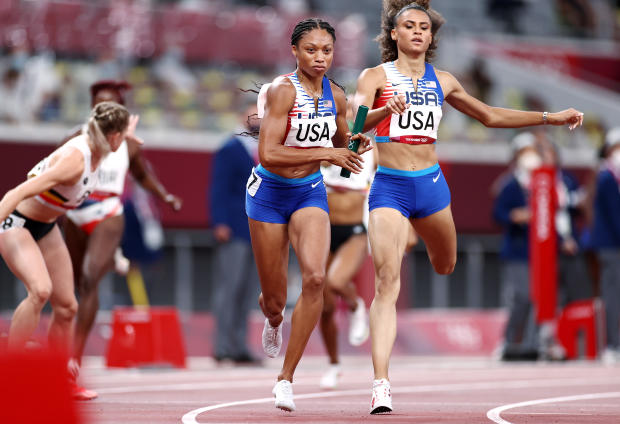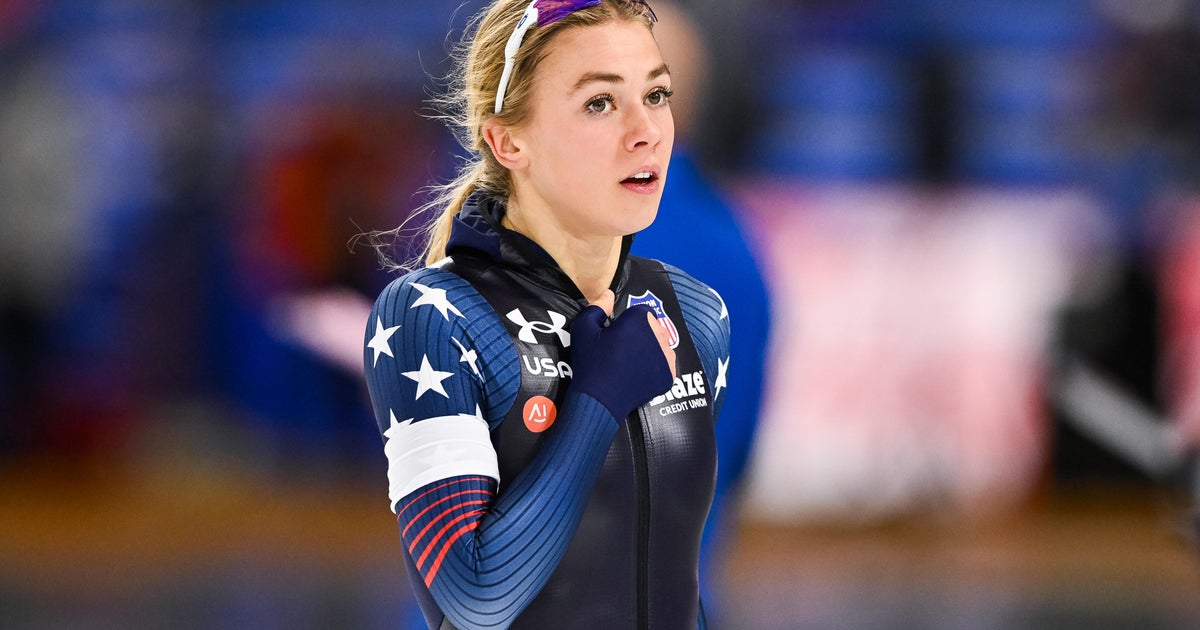Allyson Felix wins 11th medal, more than any other U.S. athlete in Olympic track history
Allyson Felix is now the most decorated U.S. track athlete in Olympic history. She won her 11th medal on Saturday, just one day after becoming the most-decorated woman in Olympic track history when she won bronze in the 400.
Carl Lewis had previously held the title as most decorated U.S. track athlete, since 1996.
Of Felix's 11 medals, seven are gold and three are silver.
At 35, she is also the oldest U.S. woman to ever win a track and field gold medal, according to CBS Sports, and has stood on the winners' podium at least one time in the past five Olympics. Only two other athletes, both women from Jamaica, have done so.
Felix combined with her American teammates to complete the 4x400-meter relay in 3 minutes, 16.85 seconds. It was a runaway victory for the team of Felix, Sydney McLaughlin, Dalilah Muhammad and Athing Mu.
Video of the event shows Felix blazing ahead of the other teams, finishing the relay for her team several seconds before the other countries could catch up. Poland finished second, at 3.68 seconds behind, and Jamaica came in third.
As Team USA tweeted, "the U.S. women's 4x400m was really, really, really ... really really fast."
The Tokyo Games marked Felix' first as a mother. She shared a touching moment with her daughter, Camry Grace, and fellow Olympian Quanera Hayes and her son, Demetrius, following her performance in the U.S. Track and Field Olympic trials in June. In an interview that day, she reflected on her journey to get back on the track.
"Today I thought about all the things," Felix said. "I thought about us fighting in the NICU, fighting for my life...Whatever happened, I just knew all glory to the most high."
In 2018, Felix underwent an emergency C-section and gave birth to her daughter two months early. Camryn, who Felix said only weighed three pounds at the time, then spent 29 days in the NICU.
While Felix was pregnant with her daughter, she was also in contract renegotiations with her sponsor, Nike. When the company found out about her pregnancy, according to CBS Sports, it was prepared to cut the terms of her endorsement by as much as 70%. In 2019, the legendary athlete wrote an op-ed for The New York Times.
"What I'm not willing to accept is the enduring status quo around maternity," Felix wrote. "I asked Nike to contractually agree that I wouldn't be punished if I didn't perform at my best in the months surrounding childbirth. I wanted to set a new standard. If I, one of Nike's most widely marketed athletes, couldn't secure these protections, who could?"
"My disappointment is not just with Nike, but with how the sports apparel industry at large treats female athletes," she continued. "Athletes are told to shut up and play. We are told that no one cares about our politics. We are told that we're just entertainers, so run fast, jump high, and throw far. And don't mess up. But pregnancy is not messing up."
Later that year, Nike changed its policy to guarantee a pregnant athlete's pay can't be cut during pregnancy and in the months after.






